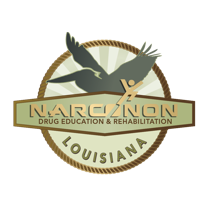Addiction Doesn’t Discriminate

Addiction is something that doesn’t discriminate. It can affect anyone; even if you think it won’t happen to you, it can. There’s no black-or-white description of what an addict looks like or their background. I sat down with one of our graduates, and she talked about how she thought addiction would never be in the cards for her, then the next thing she knew, she was in full-blown addiction.
Growing up, I couldn’t have pictured picking up drugs at twenty-eight years old. I want to consider myself as successful. I graduated high school, went to college, then went into nursing and dentistry. I’m smart and driven. My family is supportive. Trust me—addiction was certainly not in the card, or so I thought.
For me, one pill started a vicious cycle of denial and a double life. I refused to believe I had an actual problem and thought I could stop. But with drugs, it’s not so simple. The physical dependency leads to not getting high but feeling normal and functioning. I still went through life as if nothing was happening. I was still praised in the workplace for my excellent job. Still maintained most relationships. I still acted like “me.” It’s easy to see where the term “functional addict” stems from. Any person’s ability to go through life, take care of their responsibilities, and perform at a high level. Think about cocaine on Wall Street in the ’80s. Wealthy, successful, driven individuals who excelled at their jobs all while relying on a substance.
When most people hear the word addict, I’m sure they picture some homeless person who can barely manage to hold a sign at an intersection to ask for spare change. But contrary to that preconceived notion, many addicts are the exact opposite of that description.
Addiction truly takes many forms. It could be a schoolteacher, an accountant, a doctor, or anyone. Life is hard, and we’re all guilty of seeking reprieves daily. Many of us, unfortunately, get caught up and find it next to impossible to get out. It’s easy to assume, to pass judgment, or to wonder why someone won’t “just stop.” As someone sober until late in life. I admittedly thought the same way. I urge everyone that encounters addiction to take a step back. Realize that it truly does not discriminate. Drug and alcohol use is rampant, but with a little change in perception, many more lives could be saved with a little less stigma present. You never know if it could be you.
T.M. Narconon Graduate
If we continue to think addicts are just the homeless and the ones holding up signs at our intersections, we overlook the majority of others who are struggling too. Thousands of people die from drug use every year, and not all are homeless. Some are businessmen and women with lives and families who love and care about them. No set lifestyle or image perfectly depicts what an addict looks like. Addicts come in many shapes and forms from different walks of life.
There are many stigmas associated with addiction. Addiction doesn’t discriminate. You could be the wealthiest person in the world or the poorest person in the world. It doesn’t matter.
When you have a loved one struggling with addiction, you wonder why they are doing it and how it happened. Many questions are unanswered. You must realize the addict may not know the answers to these questions. You must realize when people are addicted to drugs or alcohol, they are using them to solve a problem.
Here at Narconon, we work with your loved ones to get to the root of their addiction. We help them repair the damage they’ve done to their loved ones and work to change the conditions of their lives. We understand that addiction is tough but know there is a way out. The first thing you must do is act fast. Get them into treatment before it’s too late.


